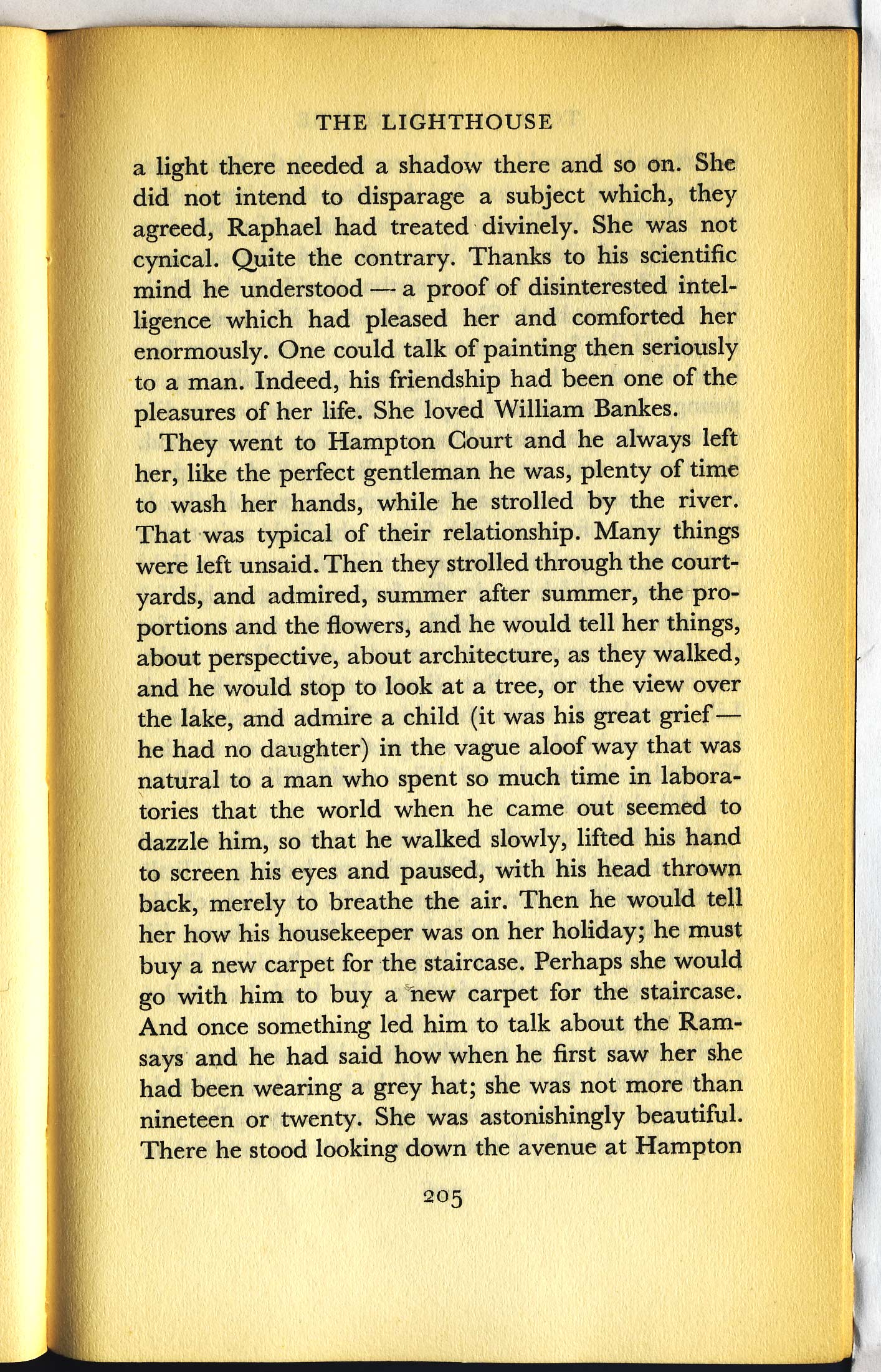
They went to Hampton Court and he always lefther, like the perfect gentleman he was, plenty of timeto wash her hands, while he strolled by the river.That was typical of their relationship. Many thingswere left unsaid. Then they strolled through the court-yards, and admired, summer after summer, the pro-portions and the flowers, and he would tell her things,about perspective, about architecture, as they walked,and he would stop to look at a tree, or the view overthe lake, and admire a child (it was his great grief —he had no daughter) in the vague aloof way that wasnatural to a man who spent so much time in labora-tories that the world when he came out seemed todazzle him, so that he walked slowly, lifted his handto screen his eyes and paused, with his head thrownback, merely to breathe the air. Then he would tellher how his housekeeper was on her holiday; he mustbuy a new carpet for the staircase. Perhaps she wouldgo with him to buy a new carpet for the staircase.And once something led him to talk about the Ram-says and he had said how when he first saw her shehad been wearing a grey hat; she was not more thannineteen or twenty. She was astonishingly beautiful.There he stood looking down the avenue at Hampton205









